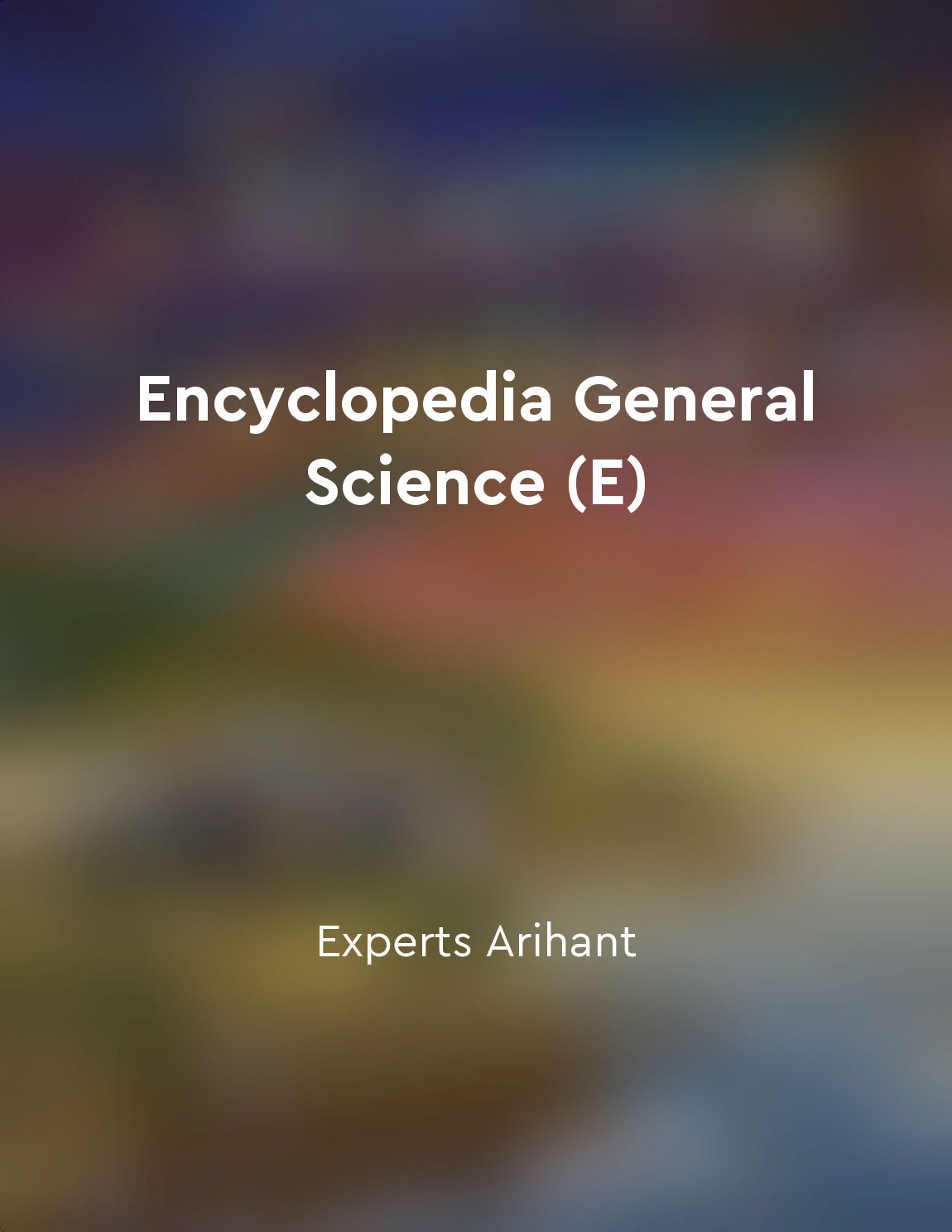Interdisciplinary approach to ecology from "summary" of The Death of Nature by Carolyn Merchant
The interdisciplinary approach to ecology involves bringing together experts from various fields to study the complex relationships between living organisms and their environment. By combining the knowledge and methods of different disciplines, such as biology, chemistry, physics, sociology, and economics, researchers can gain a more comprehensive understanding of ecological systems and the impact of human activities on the environment. This collaborative approach allows scientists to tackle ecological problems from multiple angles, leading to more innovative solutions and a deeper appreciation of the interconnectedness of all living things. Ecology is not just a scientific discipline; it is also a social and political issue that affects every aspect of human society. By integrating perspectives from different fields, researchers can better address the ethical, cultural, and economic dimensions of ecological problems. For example, an interdisciplinary team studying deforestation in the Amazon rainforest might include biologists, sociologists, economists, and indigenous community members. Each member brings a unique perspective and set of skills to the table, enriching the research process and ensuring that the findings are relevant and meaningful to a wide range of stakeholders. In the past, ecology has been primarily focused on the natural sciences, with little attention paid to the social and cultural factors that shape human interactions with the environment. However, as environmental issues have become more urgent and complex, there is a growing recognition that a holistic approach is needed to address them effectively. The interdisciplinary approach to ecology reflects this shift in thinking, emphasizing the interconnectedness of ecological systems and the need for collaboration across disciplines.- The interdisciplinary approach to ecology encourages researchers to think creatively and critically about the complex challenges facing our planet. This collaborative mindset not only leads to more robust scientific findings but also fosters a sense of shared responsibility for the health of the environment. Ultimately, the interdisciplinary approach to ecology offers a way forward in the face of unprecedented environmental threats, providing a framework for collective action and positive change.
Similar Posts
Economic growth relies on energy consumption
Energy consumption is the lifeblood of economic growth. Without sufficient energy, economies cannot expand, businesses cannot o...

Geology explores the formation and evolution of the Earth
Geology is the scientific study of the Earth's composition, structure, processes, and history. It explores how the Earth was fo...
Spaceship Earth relies on all of us to thrive
We must understand that our beloved planet Earth is like a spaceship, carrying all of us through the vastness of the universe. ...
Biodiversity is at risk of disappearing
The intricate web of life that we call biodiversity is facing a grave threat, one that could lead to its eventual disappearance...
Industrialization revolutionized the way goods were produced and consumed
The advent of industrialization marked a significant turning point in human history, fundamentally altering the way in which go...

Embracing a vision of harmony with Earth
The idea of living in harmony with Earth is not a new concept. It is a vision that has been embraced by many cultures and civil...
Valuing the contributions of all individuals
The concept of valuing the contributions of all individuals is at the core of creating a more just and sustainable world. Every...

